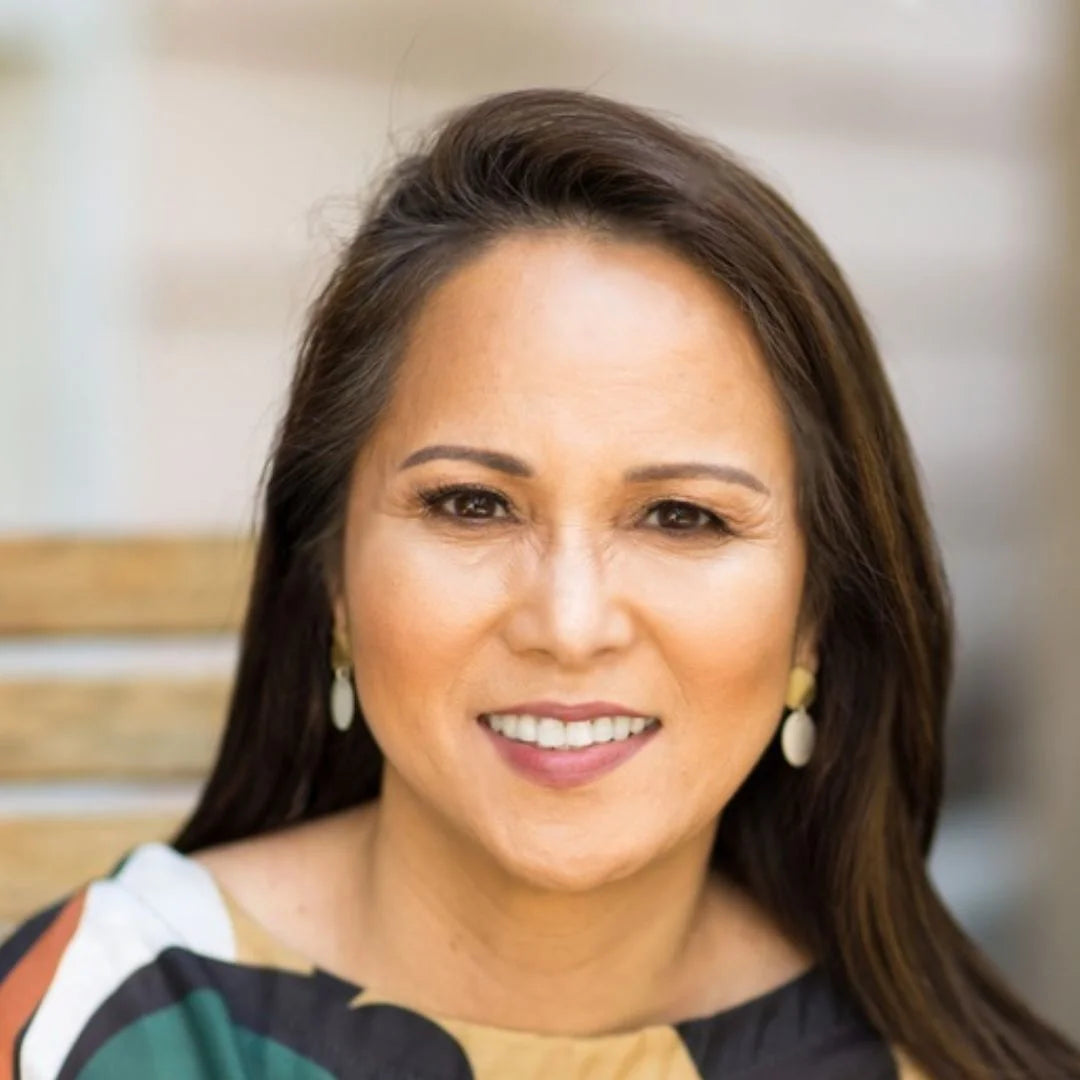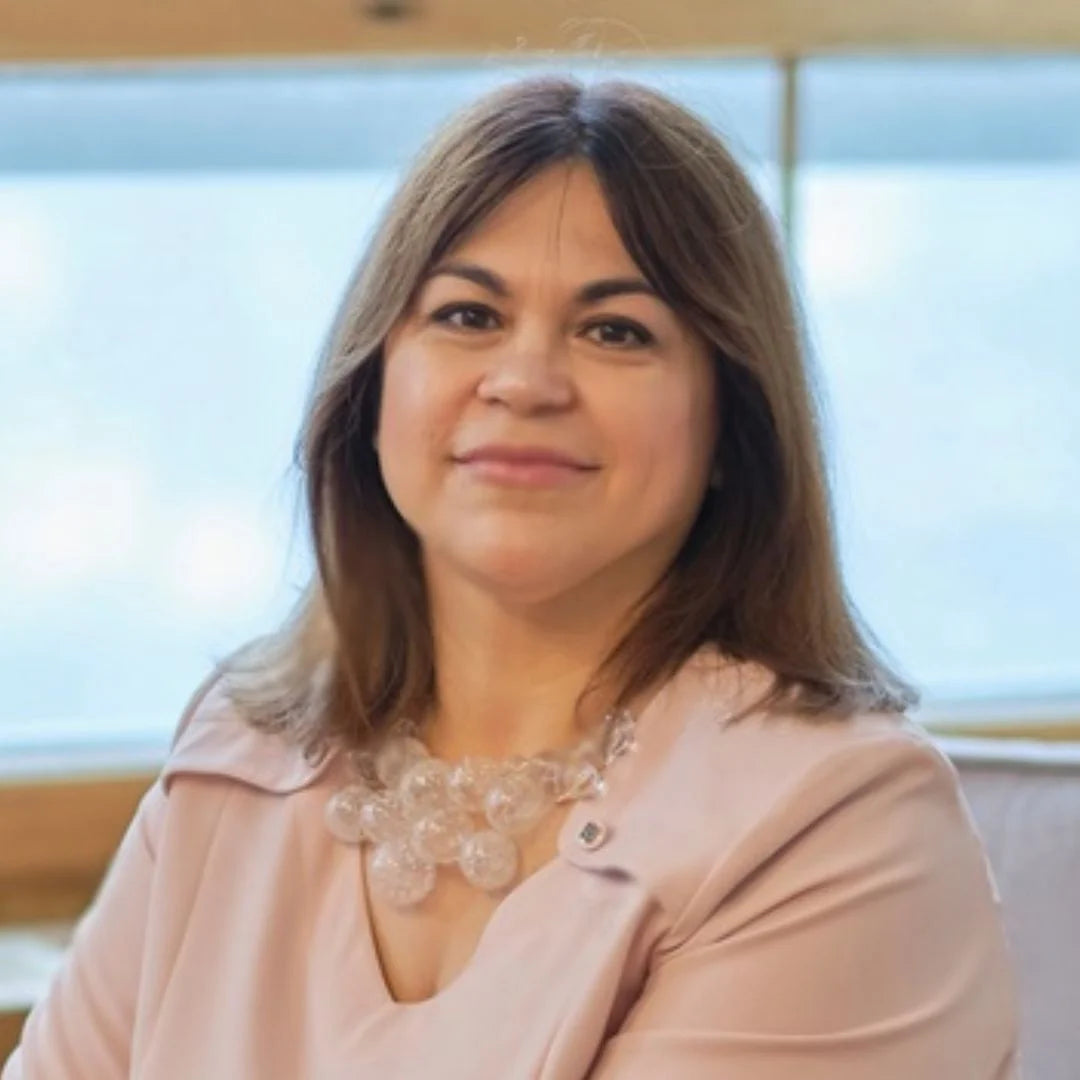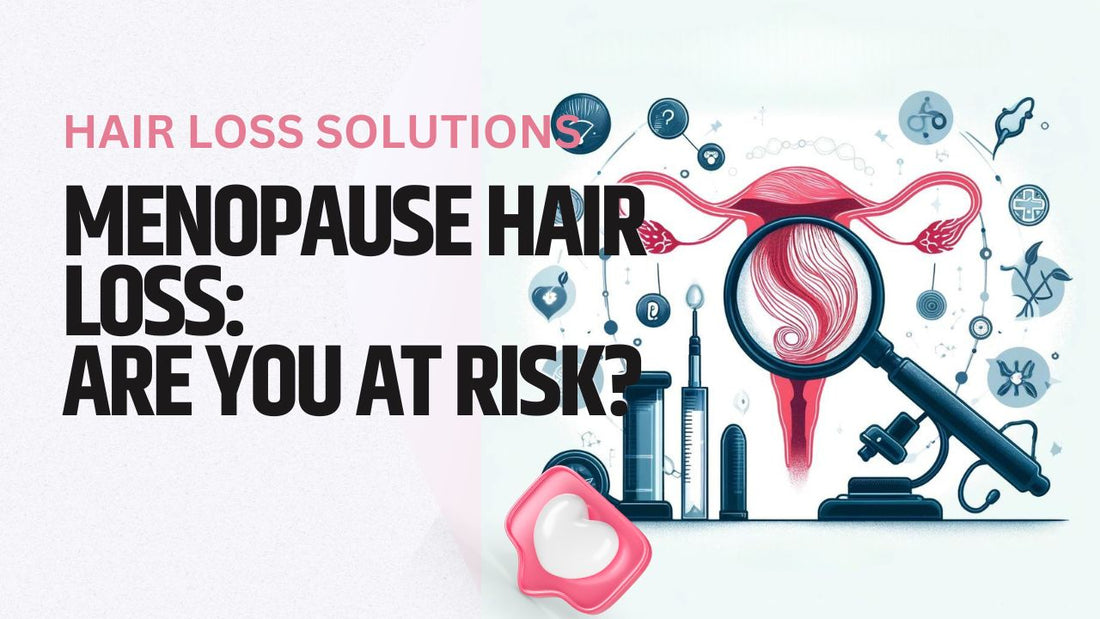
Is Menopause Hair Loss Reversible? Experts Speak
Share
Menopause marks a profound transition in a woman's life, characterized by significant hormonal shifts that can impact various aspects of health, including hair. Many women notice changes in hair volume and texture, often leading to concerns about hair thinness and loss. This comprehensive guide delves into the realities of menopause hair loss, gathering insights from experts to address a pressing question: Is menopause hair loss reversible?
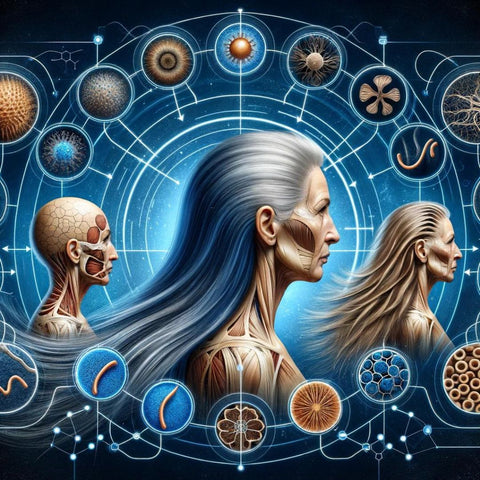
Understanding Menopause-Induced Hair Loss
During menopause, many women experience a drop in estrogen and progesterone, hormones essential for hair growth and upkeep. This hormonal imbalance raises the question: is menopause hair loss reversible? It often results in thinner hair and a higher rate of shedding.
The Role of Hormones
Hormonal changes during menopause directly affect the hair's growth cycle, leading to a slowdown in hair production and thinner hair strands. Estrogen and progesterone support hair growth; as their levels drop, the impact on hair health becomes evident.
Types of Hair Loss Experienced During Menopause
Menopause can trigger two main types of hair loss: telogen effluvium, a temporary shedding resulting from stress or hormonal changes, and androgenetic alopecia, a more permanent thinning influenced by genetics and hormonal shifts. Understanding these types can guide women in seeking appropriate treatments.
Expert Opinions on Reversibility
Drawing on the knowledge of dermatologists and trichologists, this section explores the potential for reversing hair loss caused by menopause, highlighting a spectrum of professional insights.
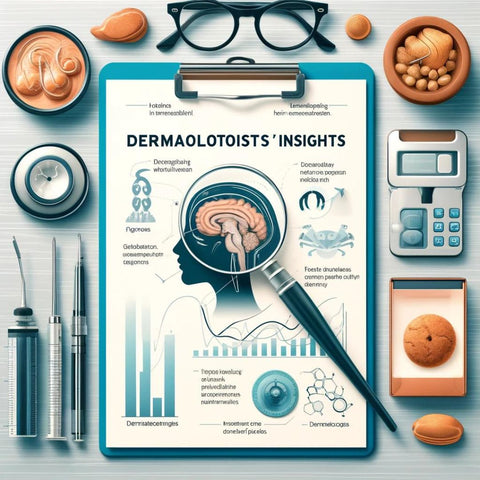
Dermatologists' Insights
Dermatologists recognize hormonal fluctuations during menopause as a primary cause of hair thinning and loss. However, they stress the variability in its reversibility, with early intervention, accurate diagnosis, and personalized treatment plans being crucial. Identifying the onset of hair loss early and understanding its underlying causes can significantly enhance treatment effectiveness. Options may include topical treatments like minoxidil, nutritional supplements, or hormonal therapy, tailored to individual needs. The goal is to address not just the symptoms but the root causes of hair loss, improving the chances of regrowth and maintaining hair health.

Trichologists' Perspectives
Trichologists emphasize the importance of scalp health for hair regrowth during menopause, advocating for holistic care. They suggest that underlying scalp conditions can worsen menopausal hair thinning. Recommendations include scalp massages to boost circulation, using gentle hair care products, and adopting lifestyle changes that benefit hair health, like nutrition improvement and stress reduction. A healthy scalp environment supports stronger hair growth, underscoring the need for a comprehensive approach to treatment that focuses on both immediate and long-term hair and scalp health.
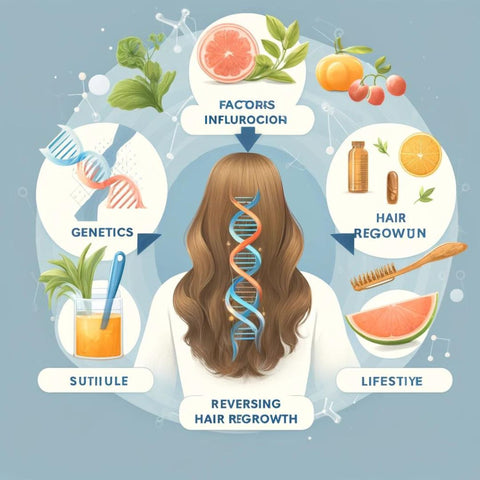
Factors Influencing Hair Regrowth
The possibility of reversing hair loss during menopause is not a one-size-fits-all scenario. Several factors come into play, affecting each individual's experience and outcomes.
Genetics and Family History
Genetics plays a critical role in determining how your hair responds to menopause. If your family history includes women who have experienced significant hair thinning or loss during menopause, you may have a higher propensity for facing similar challenges. Understanding your genetic predisposition can help tailor your approach to hair care and treatment.
Lifestyle and Nutritional Aspects
A healthy lifestyle and a balanced diet are foundational to supporting hair regrowth. Nutrients like proteins, vitamins (especially A, C, D, and E), minerals (such as iron and zinc), and omega-3 fatty acids are crucial for hair health. Incorporating these nutrients into your diet can foster a conducive environment for hair growth.

Treatment Options and Their Efficacy
A variety of treatments offer hope for those seeking to reverse menopause hair loss. Here, we explore both medical and natural solutions, highlighting their potential benefits.
Topical Treatments
Topical treatments, including minoxidil (Rogaine), can stimulate hair growth by increasing blood flow to the scalp and extending the hair growth phase. Consistent application as directed can yield noticeable improvements in hair density and coverage.
Supplements and Vitamins
Hair growth supplements and vitamins packed with biotin, vitamin D, iron, and zinc can address nutritional deficiencies that may exacerbate hair loss. While supplements can support hair health, it's essential to consult with a healthcare provider before starting any new regimen.
Hormone Replacement Therapy (HRT)
HRT can help balance hormone levels, potentially mitigating some of menopause's effects on hair. However, HRT's suitability and safety vary depending on individual health profiles and risk factors. A thorough discussion with your healthcare provider is necessary to weigh the benefits and risks.
Spotlight on Proactive Rosemary Hair Booster Oil
Proactive Rosemary Hair Booster Oil emerges as a leading natural solution in the discussion of whether menopause hair loss is reversible. Infused with the potent rosemary oil, celebrated for its scalp-stimulating and hair growth-promoting properties, this product addresses menopause-related hair thinning effectively.
How It Can Help
Proactive Rosemary Hair Booster Oil can enhance blood circulation to the scalp, providing nourishment to hair follicles. Its anti-inflammatory properties also soothe the scalp, creating a healthier environment for hair growth.
Application and Results
Applying a few drops of the oil to the scalp and massaging it in can yield significant benefits. Regular use, as part of a comprehensive hair care routine, can lead to improved hair thickness and vitality.
Holistic Approaches to Managing Hair Loss
Adopting a holistic perspective towards menopause hair loss involves looking beyond treatments to the broader lifestyle choices that impact hair health.
Stress Reduction Techniques
Menopause can be a stressful period, and stress is a well-known aggravator of hair loss. Integrating stress reduction techniques into your daily life, such as yoga, meditation, and regular physical activity, can mitigate stress's impact on your body and, by extension, your hair.
Natural Remedies and Alternative Therapies
Exploring natural remedies and alternative therapies can offer additional support for hair health. Scalp massages, essential oils (beyond rosemary, like lavender and peppermint), and herbal supplements may provide benefits. Always consult with a healthcare professional before adding new treatments to your regimen to ensure they complement your overall health strategy safely.
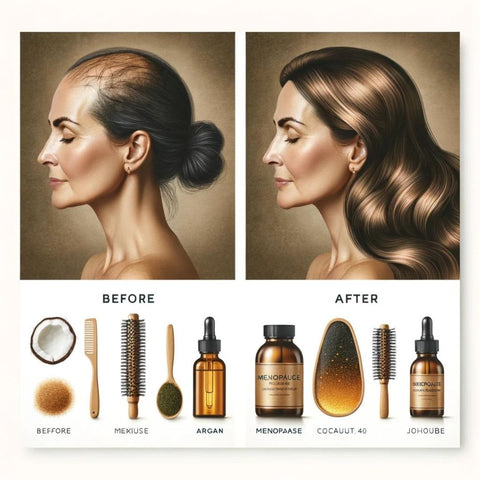
Success Stories: Real Women, Real Results
Hearing from women who have navigated menopause hair loss successfully can offer hope and inspiration. Many share how a combination of treatments, lifestyle changes, and consistent care led to noticeable improvements in their hair volume and health. These stories underscore the importance of patience and perseverance—hair regrowth and recovery is a journey that unfolds over time.
Navigating the Journey: Tips for Coping with Hair Loss
Facing hair loss during menopause can be challenging, but there are strategies to manage this transition more comfortably:
- Experiment with New Hairstyles: Shorter cuts or layers can create the appearance of more volume.
- Wear Hair Accessories: Scarves, bands, and clips can add flair to your look while disguising thinner areas.
- Connect with Others: Joining support groups or online forums can provide emotional support and practical advice from those on a similar journey.
Moving Forward with Confidence and Empowerment
Tackling menopause hair loss directly, equipped with knowledge, expert opinions, and community support, shifts the narrative from loss to empowerment. Is menopause hair loss reversible? With proactive measures, delving into treatments, and nurturing your well-being, you stand a strong chance to confidently overcome this challenge.
Frequently Asked Questions
How quickly can I expect to see results from hair loss treatments?
Results vary based on the treatment, but it generally takes several months of consistent use to notice significant changes.
Are natural treatments effective for menopause hair loss?
Natural treatments, like Proactive Rosemary Hair Booster Oil, can be effective, especially when used in conjunction with a holistic care approach. However, efficacy varies from person to person.
Can changing my diet really improve my hair health?
Yes, a nutrient-rich diet supports overall health, including hair health. Vitamins, minerals, and proteins play crucial roles in hair growth and strength.
As we conclude our journey through understanding and managing menopause hair loss, remember that this transition is an opportunity for renewal and empowerment. If you're looking for more ways to support your hair health during menopause, click here to read about 5 miracle products for menopause hair loss. These carefully selected products offer additional solutions and hope for those seeking to revive their hair's vitality and volume.
Embrace this chapter of your life with the knowledge that you have the power to influence your hair health positively. Explore the options available to you and move forward with confidence and grace.









